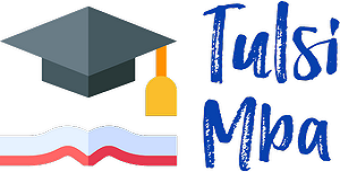The pursuit of a Ph.D. in Economics is a challenging but rewarding endeavor. It requires a significant investment of time, effort, and resources. However, obtaining a Ph.D. in Economics can open many doors for a career in academia, research, or industry. If you are considering pursuing a Ph.D. in Economics in the US, here are ten tips to help you achieve success:
Choose the right program
OneChoosing the right program is one of the most critical decisions in pursuing a Ph.D. in Economicsonsider factors such as the program’s reputation, faculty members’ expertise, research areas, resources available, and location.
Look at the program’s curriculum, admission requirements, and student outcomes. Talk to current students and alumni about their experiences to get a sense of the program’s strengths and weaknesses.
Fabricate areas of strength for science and measurements
Economics is a quantitative discipline that heavily relies on mathematics and statistics. Therefore, it is essential to have a strong foundation in these areas before entering a Ph.D. program in Economics. Make sure you have taken calculus, linear algebra, probability, statistics, and econometrics courses may also consider taking advanced courses in these areas to enhance your skills.
Read extensively
Reading extensively is an excellent way to deepen your understanding of economic theory, history, and current issues. Keep up with the latest research in your field by reading academic journals, attending seminars, and participating in online forums. Discuss ideas and theories with your peers and professors to gain new insights and perspectives.
Develop your research skills
Research skills are very important and critical for success in a Ph.D. program in Economics. Learn how to formulate research questions, design experiments, collect and analyze data, and write academic papers. Attend workshops and conferences to improve your research skills and build your network.
Seek out mentors
Mentors can be valuable sources of guidance and support throughout your Ph.D. journey. Identify faculty members who share your research interests and seek their mentorship. Attend office hours, ask questions, and discuss your ideas with them. They can provide feedback on your research and help you navigate the challenges of graduate school.
Network with peers and professionals
Networking is essential for success in academia, research, and industry. Attend conferences, workshops, and seminars to meet other graduate students, researchers, and professionals in your field. Join professional associations and online forums to stay connected with your peers and stay up-to-date with the latest research.
Collaborate with other researchers
Collaboration with other researchers can be incredibly beneficial for Ph.D. students in economics. Collaborating with other researchers can help you develop new ideas, gain new perspectives, and learn new research methods. Collaborating with other researchers can also lead to co-authored publications, which can help increase your visibility in the field.
Attend conferences and seminars
Attending conferences and seminars is a great way to stay up-to-date with the latest research in your field, and it also provides opportunities to network with other researchers. When attending conferences and seminars, be sure to present your research and engage with other attendees. This can help you gain valuable feedback on your research and make connections with other researchers in your area of interest.
Write a High-Quality Thesis
Writing a high-quality thesis is the ultimate goal of a Ph.D. program, and it requires extensive research, analysis, and writing skills. The thesis should demonstrate the student’s mastery of the subject matter, their ability to contribute to the existing literature, and their potential for future research. Therefore, students should allocate sufficient time and resources to conduct thorough research, analyze the data, and write clear and coherent chapters. Additionally, students should seek feedback from their advisors and peers and revise the thesis as necessary.
Build Strong Foundations
Students who aspire to pursue a Ph.D. in Economics should build strong foundations in math, statistics, and economics as early as possible. Taking challenging courses in these subjects in undergraduate and graduate school can help students develop the analytical skills, critical thinking, and research abilities necessary for doctoral studies. Moreover, students should participate in research projects, attend academic conferences, and engage with faculty and peers to enhance their knowledge and skills.
Find a Research Topic
Choosing a research topic is a critical step in a Ph.D. program, and students should start thinking about potential topics early in their studies. The topic should be relevant, novel, and feasible, and should align with the student’s research interests and goals. Students can seek advice from faculty, read academic literature, and attend seminars and conferences to identify potential research topics and explore current research trends.
Develop a Research Proposal
Once students have identified a research topic and advisor, they should develop a research proposal that outlines the research question, objectives, methodology, and expected outcomes of the study. The research proposal should be clear, concise, and well-organized, and should demonstrate the student’s ability to develop and articulate a research idea. Students should seek feedback from their advisors and peers on the proposal and revise it as necessary.
Develop Effective Time Management Skills
Ph.D. programs in economics are demanding, and you will need to manage your time effectively to meet deadlines and achieve your goals. Develop effective time management skills by creating a schedule, prioritizing tasks, and avoiding distractions. You should also learn to balance your work and personal life, take breaks, and practice self-care.
Build Strong Foundations in Mathematics
Economics is a math-heavy discipline, and it requires a strong foundation in mathematics. Before you start your Ph.D. program, make sure you have a good grasp of calculus, linear algebra, and statistics. You should also be familiar with optimization theory, game theory, and econometrics. If you need to improve your math skills, consider taking some math courses or attending a summer school.
Take Advantage of Resources and Opportunities
Ph.D. programs in economics offer many resources and opportunities to help you succeed. Take advantage of these resources and opportunities to enhance your learning experience. For example, you can attend research seminars, participate in study groups, join student organizations, and collaborate with other students. You can also apply for research assistantships, teaching assistantships, and fellowships to gain hands-on experience.
Conclusion: 10 Tips for Achieving Ph.D. in Economics in the US
Obtaining a Ph.D. in Economics in the US is a rigorous and demanding process, but it can also be an extremely rewarding one. With the right mindset, preparation, and dedication, anyone can complete their doctoral studies and embark on a fulfilling career in academia, research, or industry.
In this article, we have provided ten valuable tips for achieving a Ph.D. in Economics in the US. We have discussed the importance of selecting the right program, building a strong foundation in mathematics and statistics, developing research skills, building a professional network, and maintaining a healthy work-life balance.
We have also emphasized the significance of perseverance, resilience, and passion for the subject matter. Pursuing a Ph.D. in Economics requires a high level of intellectual curiosity, motivation, and commitment. However, it also provides opportunities for personal and professional growth, intellectual exploration, and making a significant contribution to the field of economics.
Conclusion
In conclusion, achieving a Ph.D. in Economics in the US is a challenging yet rewarding journey. By following these ten tips, students can increase their chances of success and create a strong foundation for their future careers. With hard work, dedication, and a love of learning, anyone can reach their full potential and make a meaningful impact in the field of economics.





